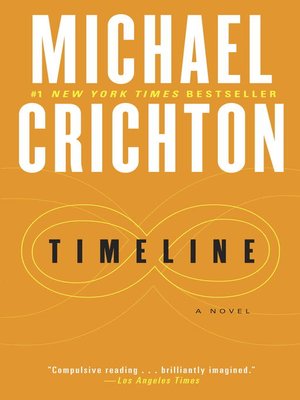
I lost count of the number of times they almost got killed.Įven though it’s even less believable than Jurassic Park, Timeline is a fun read. Within seconds of arriving in the past, the historians’ guides are dead and they are on their own. The knights are deadlier than raptors if only because we know to stay the hell away from the raptors. The middle ages, as Crichton portrays it, are not a place of courtly love and ignorant peasants.


And just like we learned in Jurassic Park, Timeline reinforces the point that the past is a lot more dangerous than we give it credit for. The historians get transported back to their castle during one of the hot points in the Hundred Years’ war. The historians are stranded in the past until the time machine gets fixed. One more similarity between Timeline and Jurassic Park: the technology fails right when they need it. You’ll have to read the book to find out how the science works, because I know it will sound ridiculous if I try to explain it. The technology, based on some interesting ideas about quantum physics, effectively transports people through time. The historians are flown in to investigate the technology and, because it’s a Crichton novel, things go to hell right rapidly. In Timeline, they are historians, currently excavating a castle in France. In Timeline, this cautionary tale begins with an escapee drawing attention to a company that’s up to something secret.

Barring the interesting–and probably wildly inaccurate–science, Michael Crichton’s Timeline has a lot of surprising similarities to Jurassic Park: a megalomaniac capitalist who wants to use the amazing technology his company invented to create an amusement park, a ticking clock, and a Faustian warning that just because you can, doesn’t mean that you should.


 0 kommentar(er)
0 kommentar(er)
